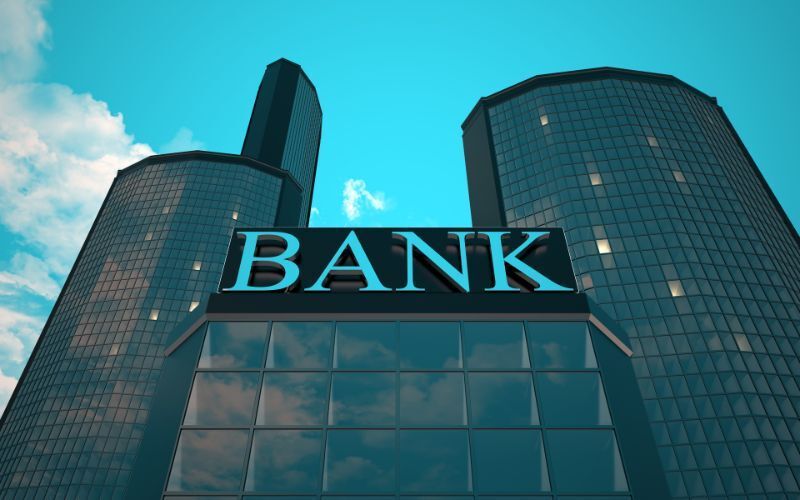Last Updated: July 19, 2024
Learn how to avoid a bank account levy

Disclaimer: We are not qualified legal or tax professionals and are not giving advice. Always speak with a qualified professional before making any legal or financial decisions.
Discovering your bank account frozen can be startling, raising more questions than answers. This situation, known as a bank levy, is a legal measure creditors use to seize funds for unpaid debts.
This guide explains the bank levy process and explores your options to prevent or respond to one. By understanding these financial actions, you'll be better equipped to protect your assets and navigate challenging financial situations.
Fast track to financial advice by skipping the article. Click here for a free consultation with a debt specialist.
What Exactly is a Bank Levy?
A bank levy occurs when a creditor legally restricts your access to account funds, transferring ownership to the judgment creditor. Typically, creditors need a court judgment to initiate this process, similar to wage garnishment. However, government entities can freeze accounts without court approval for issues like unpaid taxes or child support.
This condensed version maintains the essential information about bank levies while significantly reducing the word count. It covers the key points concisely, making it easier for readers to grasp the concept quickly.
What is a Bank Levy Judgement?
A bank levy judgment is a court decision allowing creditors to seize funds from a debtor's account to settle unpaid debts. This judgment, resulting from a legal process where creditors present evidence, validates their claim and makes it enforceable.
How Does Your Bank Account Get Frozen?
To have a bank account levied, you must have a judgment against you for an outstanding debt or other legal issues like money laundering. For non-governmental creditors, you should have received a summons. If you're unsure about the implications, it's crucial to understand whether a credit card company can sue you for unsecured debt. If you either lose the court case or ignore the summons, your bank account can be levied.
For more information on summons letters, click here. Governmental agencies must send you a letter notifying you that your accounts are being levied.
What Happens When Your Bank Account is Levied?
When a bank levy occurs, your account access is restricted. You can't withdraw, transfer, or write checks without incurring NSF fees. While you can deposit funds, they may go to the creditor. Banks typically release money to collectors after 21 days.
You'll receive a notice explaining the levy, how to lift it, and how to object. If you plan to challenge the levy, respond promptly to meet deadlines.
Bank Levies as a Taxpayer
If you are levied by the IRS, you will receive several IRS notices before you get the Notice of Intent to Levy. Always open all correspondence from the IRS. The IRS will not call email or text you.
To stop the bank levy, you must request a Collection Due Process (CDP) in writing. At this meeting, you can offer payment plans or "Offers in Compromise" to avoid the levy. If this fails, you can take your case to Tax Court. When dealing with the IRS, the services of a qualified attorney are recommended.
How does the IRS know if you have money in your bank account to seize?
The IRS had your previous tax returns and your Social Security Number. In addition according to the IRS.gov website, the IRS can seize and sell your vehicles, real estate, and private property to satisfy the tax debt.
How can you prevent your bank account from being levied?
The first and most obvious solution to not being levied is to keep on top of your finances. For more details on how to avoid a frozen or levied bank account, click here. If you're worried about wage garnishments, learn how to stop a garnishment.
Debt Collectors
If you're struggling with debt or missing payments, act quickly to avoid a bank levy. Contact creditors to discuss settlement options, explore debt relief strategies like consolidation, and always respond promptly to collection notices and legal summons.
If you're unsure about your rights, it's essential to understand the Fair Debt Collection Practices Act. Get a free debt settlement consultation with no obligation.
Respond to debt collector demand letters and summons. The link above about summons letters will help here, and our debt relief blog is full of articles about getting out of debt and dealing with debt collection.
Tax Debt
Tax debt can lead to severe consequences, including a bank levy. Promptly address any IRS letters you receive. Ignoring these communications may result in additional penalties, such as passport seizure, further complicating your financial situation. If you have tax debt, talk to a tax lawyer or CPA for guidance.
How to appeal a bank levy if it's been placed on your account
If your bank account has been levied, there are some actions you can take. These include:
Opening a new bank account immediately and stop using the levied account
There are bank accounts that are harder to levy. We discuss them in How to Avoid a Frozen Bank Account. You can protect your incoming money and keep paying bills so as not to fall further behind.
Some money is protected as long as it is kept separate from other funds, including:
- Federal benefits like Social Security
- Unemployment Benefits
- Retirement Benefits
- Child support payments / Spousal Payments
- Federal benefits like Veterans’ Benefits
- Life Insurance Benefits
- Disability Benefits
Some bank accounts are protected. These include:
- Joint accounts - as long as the other person on the joint account is not named in your court judgment.
- Out-of-state accounts
- Trusts like domestic asset protection trusts
Proving that the creditor made an error
Creditors make mistakes all the time - in fact, in 2020 more than half of the consumer complaints to the Consumer Financial Protection Bureau were over contact about debts that were not theirs. Request a debt validation letter.
Check out How to Dispute Collections and Win for more information.
Proving the debt is a result of identity theft
If this debt results from identity theft, you can fight the levy. To get an identity theft report, contact the Federal Trade Commission (FTC) via
IdentityTheft.gov. You will then contact law enforcement and the court that levied the judgment.
Negotiating with the creditor
Try negotiating with creditors before a bank levy occurs, but it's possible even after. Discuss modified payments, lower interest rates, or hardship programs. Always get any agreements in writing.
Checking the statute of limitations
Depending on when the debt went delinquent, it may be "time-barred" or not collectible under the state statute of limitations. You can not promise to pay or make a good faith payment after the statute of limitation has passed. This is a good time to contact a lawyer for help.
Contesting the lawsuit
Challenging legal action depends on the lawsuit's age and proper notification. If you can prove lack of notice for a bank levy, you might halt the process. Consult a lawyer quickly if you want to contest.
Filing bankruptcy
This may be an option, but it's a very complicated one, costs a lot of money, and is time-consuming. Always speak with a bankruptcy attorney when considering bankruptcy.
How to Prevent a Bank Levy
Taking proactive steps can help you avoid having your bank account levied in the first place.
Here are some tips:
- Check your credit report regularly and dispute any errors - Mistakes on your credit report could lead to incorrect judgments.
- Stay on top of bills and debt payments - Don't let debts escalate to the point of legal action. Communicate with creditors early if you're struggling.
- Consider debt relief options- like debt settlement or bankruptcy before things escalate - Consulting a professional can help you take control of overwhelming debts.
- Build an emergency fund - Having savings helps you avoid missing debt payments if you face an unexpected expense or income disruption.
Taking preventative measures can help you avoid the serious consequences of a bank levy. Monitor your financial situation closely and act quickly at the first sign of trouble.
Can you get your money back if the levy is released or overturned?
Getting your money back after a levy is released or overturned is possible.
The IRS
By federal law, the IRS is required to release a levy, but you may still have to pay the tax debt, if:
- You paid the owed amount
- The collection period ended before the levy was issued
- Releasing the levy will help you pay taxes
- You have an Installment Agreement that does not allow for the levy to continue
- The levy can create an economic hardship, and the levy may not leave you with enough money to meet basic requirements
- The value of the property seized is more than the amount owed
- Releasing the levy will not hinder the IRS's ability to collect the amount owed
Other Creditors
Speak with an attorney. This may require legal action and a court order.
FAQs
Conclusion
Be proactive to prevent debts from escalating to legal action. Respond promptly to all communications and keep detailed records. If you find yourself facing a bank levy, act swiftly: open a protected account, manage essential expenses, and explore options to dispute or negotiate. For tax-related issues, consider consulting a professional.
Remember, taking prompt action is crucial in resolving these situations and regaining financial stability. If you're overwhelmed by debt, don't hesitate to explore various debt relief options available to you, Pacific Debt Relief offers a free consultation to assess your financial situation. Our debt specialists can provide objective guidance relevant information and support to help find the right debt relief solution.
*Disclaimer: Pacific Debt Relief explicitly states that it is not a credit repair organization, and its program does not aim to improve individuals' credit scores. The information provided here is intended solely for educational purposes, aiding consumers in making informed decisions regarding credit and debt matters. The content does not constitute legal or financial advice. Pacific Debt Relief strongly advises individuals to seek the counsel of qualified professionals before undertaking any legal or financial actions.
✔ Accredited by Better Business Bureau with BBB A+ rating (4.93 rating and 1678 reviews)
✔ US News and World Reports and Bankrate ranked Pacific Debt Relief as one of “The Best Debt Relief Companies of 2024”
✔ 6.9 star rating by BestCompany.com (over 2379 client reviews)
✔ 4.8 star rating by TrustPilot based (over 1613 verified consumer reviews)
✔ ConsumerAffairs.com Accredited (over 544 verified reviews with an average rating of 5 stars)
✔ A Top 10 Rated Compan by TopTenReviews.com , ConsumersAdvocate.com and Top10debtconsolidation.com
✔ 4.6 star rating by Google (229 client reviews)
✔ 100% rating by SuperMoney (9 client reviews)
Reduce Your Credit Card Debt By Up to Half

BBB Reviews | 4.9/5.0 Rating









 Do Not Sell My Personal Information
Do Not Sell My Personal Information